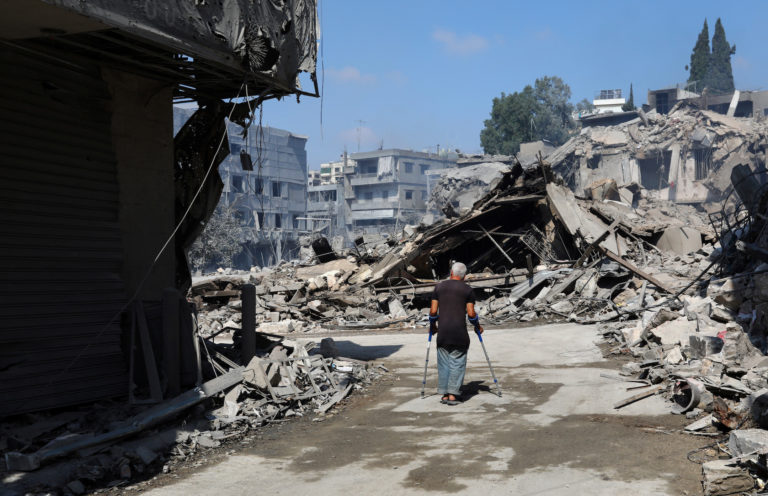With Israeli military campaigns continuing their onslaught in Gaza, fears are going sky-high across the whole area as the Lebanon operations continue to expand in width. The start of flare-ups in hostilities between Israeli forces and militant groups in Lebanon has started to spook the entire region about the implications of stability within the area. These airstrikes, mainly against Hezbollah sites in the southern part of Lebanon, have sent ripples and flung the civilian population on both sides of the border into an anxious wait for something much worse to come that would engulf this country in the ongoing conflict.
Israel Widen Air Strikes: On Hezbollah
Israel has escalated its airstrikes in the current wave of violence in Lebanon, striking Hezbollah’s military positions along Lebanon’s southern border. Israel has warned Hezbollah, the powerful Shiite militant group, repeatedly, but exchanges of fire have become more frequent in recent days. The IDF claims Hezbollah attacks are aimed at weakening Hezbollah’s supply lines and its ability to fire rockets into Israeli territory.
Lt. Col. Jonathan Conricus, the military spokesman for Israel, said that the Israeli army “has conducted major strikes against Hezbollah positions, weapons depots, surveillance posts, and rocket launchers.” “Hezbollah is directly involved in the violence, and it’s important we send a message that their involvement will not go unpunished,” Conricus added.
Casualties and Escalating Fear in Lebanon
In targeting Hezbollah, Israel’s attacks have wreaked havoc on the infrastructure of civilian life, especially in towns bordering the country. Civilians were reported killed and injured as the violence split into residential areas. Lebanese officials condemned Israeli airstrikes, saying they are indiscriminate and have endangered innocent lives. The UN has urged restraint on all sides, warning that the continued escalation risks destabilizing the region.
Residents of southern Lebanon have the constant presence of airstrikes. Many fled their homes when air raid sirens shrieked and bombs pounded the area. “We are not safe anywhere. We live in constant fear of the next bomb,” said a resident in the port city of Tyre on the border with Israel. “It is like living under siege.”
Hezbollah’s Reaction to the Crisis: Rockets and Revenge
Hezbollah, now a powerful force in the contours of Lebanon’s politics and military, had retaliated with rocket fire into northern Israel. Heralded by Hassan Nasrallah, the group vowed it would stand with Gaza and its Palestinian comrades, making the situation all the more complicated. A military force to be reckoned with, their powers are so heavy that experts caution about the real prospect of all-out war between the two antagonists if escalation occurs.
Hezbollah’s involvement becomes an essential input in this enlarging scope of conflict. Whether focused on the southern border in Israel or launching support for Hamas in Gaza, it betrays a deeper regional alliance that could drag in other Middle Eastern actors. Israeli action and the global players are following the group’s military operations, such as missile and rocket launches, to increasingly credibly threaten the possibility of a wider regional war.
Regional Impact on the Middle East in the International Context
The recent outbreak of war in Lebanon marks a sensitive moment in the Middle East. With the war still raging on in Gaza and Israel’s military actions within its territories stretching further, world leaders have started warning that this violence could spread over to the neighboring regions. International leaders, who are both the United Nations and the European Union, all called for an end to the violence that has reached this point and a return to dialogue.
Another regional player that is involved in this situation is Hezbollah, and there is always fear on the side of Iran, as it may intervene in favor of this ally of theirs. Historically, Hezbollah has been an ally financially and militarily supported by Iran, and its role remains a factor in this war. Should Iran start getting close to the side of their conflict, it might drag into the United States and other Western powers and make things even more complicated in the efforts aimed at stabilizing the region.
A Region on Edge: Impact of the Conflict on Lebanon’s Future.
Lebanon, already burdened with political instability and economic collapse, is now threatened by the possibility of another destructive war in the near vicinity. A battered government struggling to remain in control of its land has asked for an immediate ceasefire and warned the international community of disastrous consequences if it escalates further. Officials from Lebanon expressed their frustration at the war violence spilling over into their country, displacing more civilians and further damaging an already fragile economy.
While Israel’s real aim is to blunt Hezbollah’s military capability, such a move would be destabilizing to the already fragile state of Lebanon. Already witness to sectarian strife, the country might find itself caught again in a regional battle that could spill and worsen out of control.















